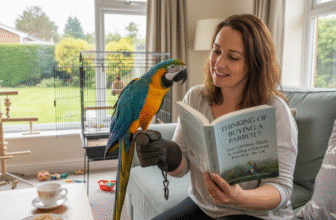
Finding Your Perfect Canine Companion: A Guide to ‘Dog for Sale Near Me’ in the UK
The decision to bring a dog into your life is one of the most exciting and rewarding choices you can make. That simple search, “dog for sale near me,” is the first step on a journey that will bring you immeasurable joy, companionship, and a whole lot of muddy paw prints. Here in the United Kingdom, we are a nation of dog lovers, but that very love means we must be diligent and responsible in how we find our new four-legged family members. This guide is here to walk you through that process, moving beyond a simple transaction to ensure you find a happy, healthy dog and avoid the pitfalls that can lead to heartache.
Embarking on this quest isn’t just about finding a cute face; it’s about making a commitment for the lifetime of that animal. It’s about understanding where they come from, who has been caring for them, and ensuring their first weeks and months of life have been positive ones. Let’s navigate the journey together, exploring the best paths to find your perfect canine companion right here in the UK.
The Two Main Paths: A Reputable Breeder or a Loving Rescue
When you start looking for a dog, you’ll find two primary avenues open to you: purchasing a puppy from a breeder or adopting a dog from a rescue centre. Both are valid and wonderful ways to find a dog, but they are very different experiences. Understanding which is right for you is the first and most crucial decision.

The Reputable Breeder Route
Choosing to buy a puppy from a breeder is often driven by the desire for a specific breed, a known history, and the experience of raising a dog from its very earliest days. A truly reputable breeder is a custodian of their chosen breed. They are passionate, knowledgeable, and put the health and welfare of their dogs above all else. But how do you tell the good from the bad and the downright ugly?
A good breeder will welcome your questions and have plenty of their own for you. They will want to ensure their precious pup is going to a five-star, forever home. Here’s what to look for:
- Health First: They will openly share health test results for the parent dogs. Many breeds are prone to specific hereditary conditions, and responsible breeders screen for these to ensure the healthiest possible offspring. Ask to see the certificates for things like hip and elbow scores, eye tests, and relevant DNA tests for the breed.
- A Loving Environment: When you visit, the puppies should be in a clean, safe, and nurturing home environment. They should be well-socialised, used to the sights and sounds of a household, and appear confident and happy. A puppy raised in a sterile kennel or a chaotic, dirty environment may have behavioural issues later in life.
- Meet the Mum: This is not just important; in the UK, it’s the law. “Lucy’s Law,” introduced in England in 2020 and with similar legislation across the UK, makes it illegal for a third party (like a pet shop or a dealer) to sell puppies and kittens. You must buy directly from the breeder, and you must see the puppies interacting with their mother. If the seller makes excuses as to why the mother isn’t present, walk away immediately. This is the biggest red flag for a puppy farm.
- Patience is a Virtue: A good breeder will likely have a waiting list. They don’t have an endless supply of puppies available on demand. Be prepared to wait for the right dog from the right person.
- Kennel Club Assured Breeders: The Kennel Club runs an Assured Breeder Scheme (ABS). While not a guarantee of perfection, breeders on this scheme have agreed to follow certain standards of care and are inspected. It’s a good starting point in your search for a reputable source.
The Adoption and Rescue Route
Across the UK, rescue centres are filled with incredible dogs of all shapes, sizes, and ages, all waiting for a second chance at a loving home. The misconception that rescue dogs are “damaged goods” is outdated and simply untrue. Most are in rescue through no fault of their own—a change in family circumstances, a relationship breakdown, or an owner’s ill health.
Adopting a dog is a deeply fulfilling experience. You are not just gaining a friend; you are saving a life. Here’s what to expect from the adoption process:
- Finding a Match: Reputable rescue organisations like the RSPCA, Dogs Trust, Battersea, and Blue Cross, as well as countless smaller, independent rescues, are experts in matchmaking. They will get to know you, your lifestyle, your home, and your experience level to find a dog that will truly thrive with you.
- A Known Quantity: While you might not know its history from birth, a dog in a rescue centre has been assessed by professionals. They can tell you about its personality, its quirks, its energy levels, and what kind of training it might need. This can often be more reliable information than you’d get about an 8-week-old puppy whose personality is yet to fully develop.
- Ongoing Support: Good rescue centres don’t just hand over a dog and wave goodbye. They offer post-adoption support, advice, and behavioural help to ensure both you and your new dog settle in well together.
- The Process: The adoption process usually involves an application form, an interview, and sometimes a home check. This may seem intrusive, but it’s all done to ensure the welfare of the dog. They have a duty of care, and these checks are a sign of a responsible organisation.
Navigating the Online Search for “Dogs for Sale Near Me”
The internet is an invaluable tool in your search, but it’s also a minefield. Unscrupulous sellers use anonymous online platforms to hide their cruel practices. It’s vital to be savvy and cynical when Browse.
Spotting the Scams and Puppy Farms
Puppy farms are commercial breeding operations where profit is prioritised over the well-being of the dogs. Dogs are often kept in horrific conditions, and puppies are taken from their mothers too early, leading to severe health and behavioural problems. These sellers are masters of disguise and will use online listings to trick unsuspecting buyers.
Red Flags to Watch For:
- Too Good to Be True: If an advert is for a highly sought-after “designer” breed at a very low price, be extremely suspicious.
- Suspicious Wording: Look out for adverts with poor grammar and spelling, or phrases that create a sense of urgency, like “only two left, act fast!”
- Stock Photos: Scammers often steal cute puppy pictures from the internet. Use a reverse image search (like Google Lens) to see if the photo appears on other websites. A genuine breeder will have plenty of unique photos of their pups.
- No Questions Asked: A seller who doesn’t ask you about your home, your lifestyle, or your experience with dogs doesn’t care where their puppy is going. This is a massive warning sign.
- Requests for Payment Upfront: Never, ever pay a deposit or the full amount for a puppy you haven’t seen in person, at the breeder’s home, with its mother. Scammers will often ask for money via bank transfer or a payment app and then disappear.
- Meeting in a Car Park: A classic tactic of illegal sellers is to offer to meet you somewhere “convenient” like a service station or car park. This is to prevent you from seeing the awful conditions the dogs are kept in. Always insist on visiting the puppy where it was born and raised.
The Crucial First Visit: What to Look For and What to Ask
So, you’ve found a promising breeder and you’ve arranged a visit. This is your chance to play detective and ensure everything is as it should be. Go armed with a list of questions and a critical eye.
Assessing the Environment
Take a good look around. The home should be clean (within the normal limits of a house full of puppies!). The puppies should have space to play and explore. They shouldn’t be crated for long periods or confined to a small, dirty pen. Do they have access to fresh water and toys? Does the place smell clean?
Observing the Dogs
Watch the puppies and their mother closely. The mother dog should be happy to see you and comfortable with her pups. She should look healthy, a good weight, and well-cared-for. If she is nervous, aggressive, or looks unwell, this is a concern.
The puppies themselves should be bright-eyed and energetic. Look for clean eyes, ears, and bottoms. Their coats should be healthy. A pot-bellied, lethargic puppy with a dull coat may be suffering from worms or other health issues. Watch how they play with their littermates. A good breeder will have started basic socialisation, so they should be curious and friendly, not overly fearful.
A Checklist of Questions for the Breeder
- Can I see the entire litter and the mother?
- What health tests have the parents had? Can I see the certificates?
- Have the puppies been to a vet? What vaccinations have they had?
- Have they been treated for worms and fleas? What products were used and when?
- What have you been feeding the puppies and the mother?
- What socialisation have the puppies experienced so far? (e.g., meeting children, hearing a vacuum cleaner, car travel).
- Are the puppies microchipped? (It is a legal requirement for the breeder to microchip puppies by 8 weeks of age, before they are sold).
- Will the puppy come with a contract of sale? This should detail the responsibilities of both you and the breeder.
- What support do you offer after I take the puppy home?
- Can I have a blanket or toy with the scent of the mother and littermates to help the puppy settle in?
Understanding the Costs and Responsibilities
The initial purchase price of a puppy is just the beginning. Dog ownership is a significant financial commitment. Before you commit, you must be honest about whether you can afford to give a dog the life it deserves.
Initial Costs:
- Purchase Price/Adoption Fee: This can range from a few hundred pounds for a rescue dog to several thousand for a pedigree puppy.
- Setup Costs: Bed, crate, bowls, collar, lead, toys, grooming tools can easily add up to a few hundred pounds.
Ongoing Annual Costs:
- Food: A significant and unavoidable expense.
- Pet Insurance: Absolutely essential. An unexpected illness or accident can result in vet bills costing thousands of pounds.
- Veterinary Care: Annual boosters, flea and worm treatments, and check-ups.
- Training and Socialisation Classes: Highly recommended for a well-behaved adult dog.
- Grooming: Some breeds require professional grooming every 6-8 weeks.
- Daycare/Boarding: If you work long hours or go on holiday, you will need to budget for professional dog care.
Preparing Your Home and Heart
Once you’ve made your decision and you’re waiting to bring your new companion home, the preparation begins. Puppy-proof your home by securing loose wires, removing toxic plants, and ensuring chemicals are out of reach. Set up a designated “den” area for your dog with their bed and toys, where they can feel safe and secure.
Most importantly, prepare your heart. The first few weeks can be challenging. There will be sleepless nights, toilet training accidents, and moments where you wonder what you’ve done! But with patience, consistency, and a huge amount of love, you will build an unbreakable bond. The search for a “dog for sale near me” will be a distant memory, replaced by the reality of the warm, loving, and loyal friend sitting by your feet. Your responsible search will have paid off, ensuring the journey you share is a long, happy, and healthy one.







